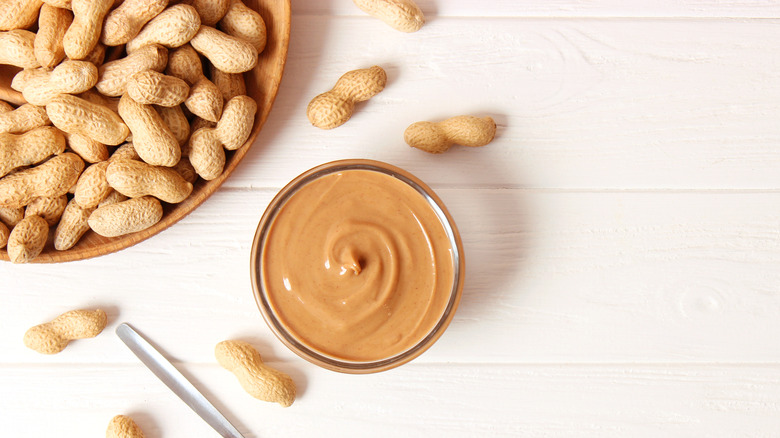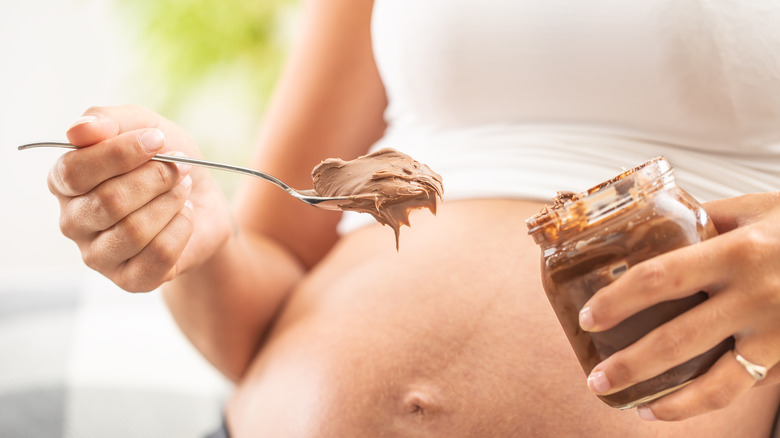Is There A Way To Prevent A Baby From Having A Peanut Allergy While Pregnant?
A peanut allergy is an autoimmune reaction to the body coming into contact with the proteins found in peanuts, explains the Mayo Clinic. The immune system will then attack these proteins, leading to a variety of symptoms that range in severity. Certain responses include hives or redness on the skin, tightness of the throat, itching of the mouth, a runny nose, and digestive stress. On the most extreme end, the body may enter into anaphylaxis shock, in which the airways constrict and a loss of consciousness can occur. This symptom requires emergency medical treatment.
The American College of Allergy, Asthma & Immunology states that peanut allergies are one of the most common allergies among children. In fact, around 2.5% of U.S. children may be allergic to peanuts. Additionally, this allergy is increasing in frequency, up by 21% between 2010 and 2017. As a result of the high increase of peanut allergies, certain immunology therapies have been designed to treat the allergy. This includes oral peanut immunotherapy, which works to desensitize the immune system by giving a child a very small dose of peanuts, which reduces the chances of a serious allergic reaction.
In addition to therapies, there are also guidelines for diminishing the risk of a child becoming allergic to peanuts, and the age for doing so may be much younger than you think.
Early exposure to peanuts can minimize the development of an allergy
Up until relatively recently, the American Academy of Pediatrics (AAP) advised pregnant and breastfeeding women to stay away from all things peanut, as this was thought to reduce the risk of a child developing a peanut allergy (per What to Expect).
The AAP updated its guidelines in 2017 after a 2015 study found that babies who were introduced to peanuts between 4 and 11 months of age were less likely to develop a peanut allergy had they been exposed to the food. The AAP now recommends introducing peanuts to babies as young as 4-6 months, as long as the child is developmentally ready to eat solid foods. Additionally, children who are at a higher risk of having a peanut allergy due to co-occurring allergies or a family history of peanut allergies are no longer advised to avoid peanuts, but rather work with the family healthcare provider to develop a plan for early and safe exposure.
While early exposure can go a long way in preventing a peanut allergy, there is still not enough evidence to suggest that eating peanuts during pregnancy can prevent its development, as per a 2018 systemic review. That being said, studies have shown that abstaining from peanuts during pregnancy won't prevent an allergy in the developing baby either. The bottom line for pregnant women? Pop those peanuts as you see fit.


